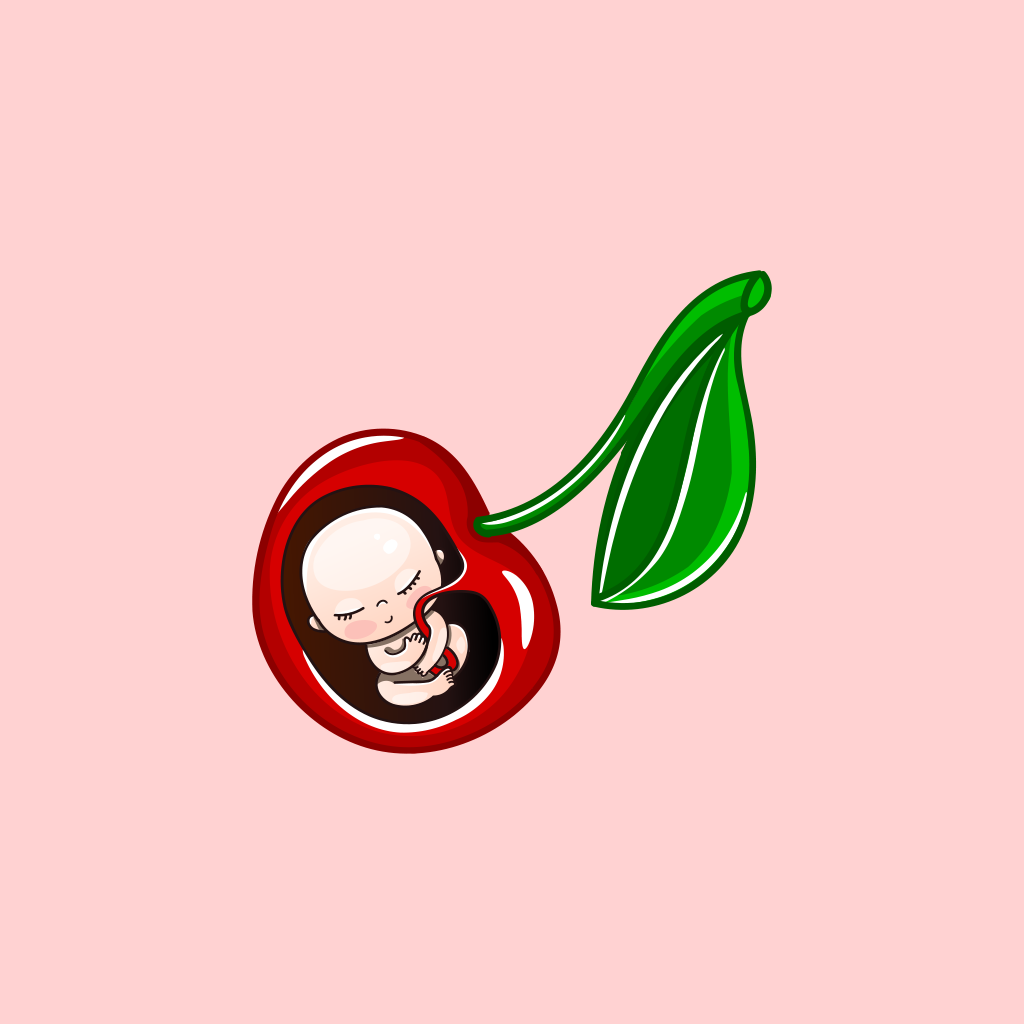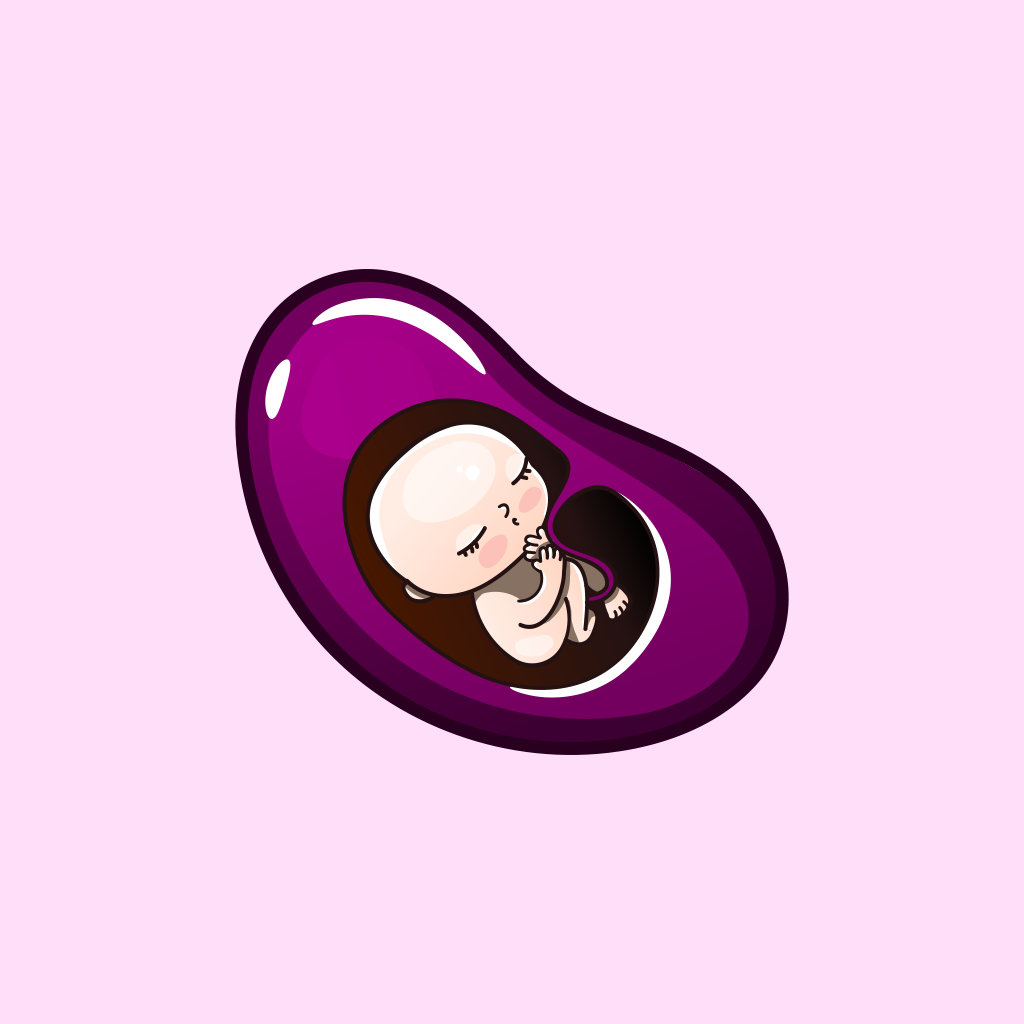Welcome to week seven!
Your baby will double in size this week, hands and feet appear like paddles and your baby is about the size of a blueberry.
Your baby’s brain is now separated by two hemispheres and both kidneys are in place! It is incredible how intricately woven into your womb your baby is by now and from the outside, you do not look a bit different. You may already have a strong connection to your baby, and you may already feel like a mom because you are!

It is incredible how intricately woven into your womb your baby is by now and from the outside, you do not look a bit different.
How my Baby Grows
- The arm and leg buds that we talked about last week now appear to have tiny paddles that will separate into fingers and toes in the weeks to come.
- Arm and leg joints are also forming, the limbs are becoming longer and now have shoulders, arms, hands, knee and foot segments
- Two separate hemispheres of the brain can now be seen by ultrasound, the brain and heart are now becoming more complex in structure, about 100 new brain cells develop each minute
- The baby’s permanent set of kidneys are in place now
Symptoms Mama may Feel or Experience
- Bladder pressure and urinary frequency are probably beginning to really bother you, urinary tract infections are more common in pregnancy so if you are having pain with urination too or running a fever, you will need to contact your provider
- Nausea, breast tenderness and fatigue are really noticeable now, pace yourself, the fatigue will likely improve in the second trimester however it is ok to slow down some if possible, give yourself the grace to take it easy and rest when you need it
- You may be having a hard time keeping the secret of your pregnancy if you are trying not to tell others
Thoughts to Consider
- You will probably be having your first prenatal visit soon, there will be lots of lab work needed at the first visit and probably an ultrasound to date the pregnancy
- An ultrasound is a very safe procedure that bounces sound waves off internal organs to obtain an image, it will amaze you to see how clearly visible the baby is and how much he/she moves around
- At this visit if you are less than 13 weeks, they will probably measure a crown-rump length which is just what it sounds like, a measurement between the baby’s head and butt
- If your due date, based on your last menstrual cycle, corresponds with the crown-rump length on the ultrasound it is ideal, if not, your doctor or midwife may repeat another ultrasound to confirm your due date based on what they find
- The best time to do this dating scan is week 8-10 of the pregnancy
- If you want more information about what is done at the first prenatal visit check out our StorkAdvisor Go-to-Topic article about prenatal care under the pregnancy category
- Have you met any other pregnant women that are due about the same time as you, are you keeping up with a journal, it is not too late to start
- This might be a great time to start thinking about the products that you will need once your baby comes home because there is so much to choose from
- Don’t forget that StorkAdvisor has a product review section that might be really helpful as you consider what is most important to you
- It is also great to ask other new moms about what their favorite products are and why
Tips for a Healthy Pregnancy
- Let’s focus on calcium this week.
- Calcium is needed to build strong bones and teeth for the baby and to support your bones and teeth as well
- It also boosts muscle, heart and nervous system development.
- The best source of calcium is dairy products like milk, yogurt, and cheese, you can also get calcium in almond and soy milk
- If you don’t drink milk or eat dairy, calcium can also be found in dark-green leafy vegetables, dried beans and peas, fish and beverages or cereals that are fortified with calcium
- The intake of calcium in your diet is more absorbable than what you would find in calcium supplements so your body will process it better
- Don’t forget the water, 8-10 8-ounce glasses per day, you might consider purchasing a container that holds 64-80 ounces to carry with you all day just to ensure that you are getting the hydration you need
- How are you doing with the healthy habit challenge that we initiated in our first week together
- Everyone deserves to live in a safe environment, if you are in an abusive relationship, pregnancy is the perfect time to seek help, pregnancy is often one of the triggers that cause the abuse to escalate, any hospital or perhaps where you are receiving prenatal care can help you develop a plan to seek shelter, neither you nor your baby deserve to live in fear of harm

Dr. Cheryl Sharp,
Certified Nurse Midwife
Chief Content Officer
Chief Content Officer


